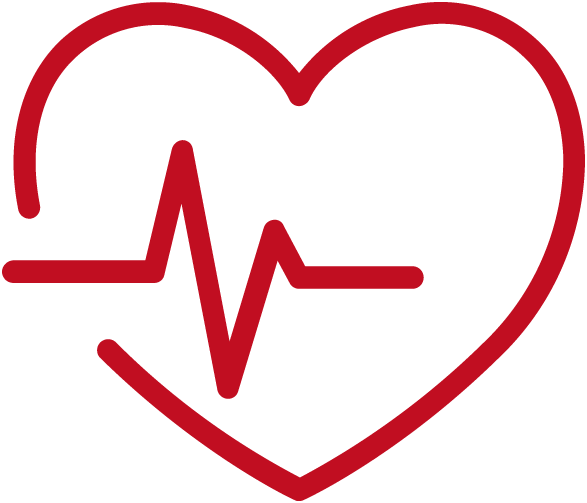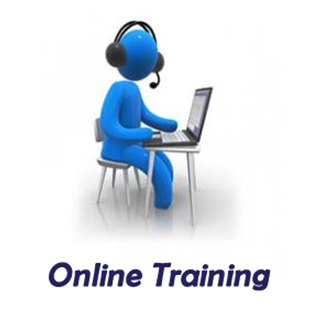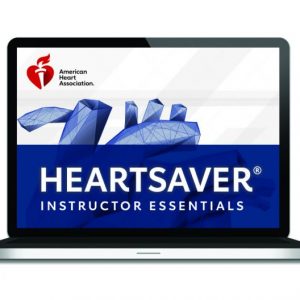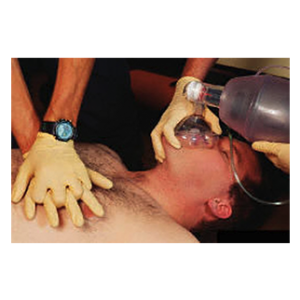Online ACLS training courses, American Heart Association
$24.00 – $155.00
Description
SAVE A LIFE Corporation offers online training courses:
 American Heart Association
American Heart Association

ACLS
ACLS is an advanced course that builds on the foundation of lifesaving BLS skills, emphasizing the importance of continuous, high-quality CPR, and high-performance team dynamics.
All Online AHA eLearning courses begin with a course key, which is a 12-digit or 9-digit alphanumeric code used to access purchased courses. A course key may be purchased directly by an individual who will complete the training.
Online training courses; CME/CE hours are available. A Hands-on Skills session is required
With your Zip code, we will offer you 3 locations to get your hands-on training completed.
-
HeartCode® ACLS 2.0 CE hours
 code: 203554
code: 203554 Description
HeartCode ACLS is the AHA’s blended learning delivery method for the AHA’s ACLS Course. HeartCode blended learning delivers quality resuscitation education regardless of where providers are located and gives them more control to complete the course at their own pace. Providers first complete the online portion of HeartCode ACLS and then complete a hands-on skills session with an AHA ACLS Instructor or on a simulation station. To enter the course, participants must complete a precourse self-assessment. Access to the ACLS Provider Manual eBook (20-3100) is included with HeartCode ACLS. You will be able to access the Provider Manual from within the course.
This product has been updated with new science from the 2020 Guidelines for CPR and ECC and replaces the previous version (15-1407).
How does the 2020 Guidelines version of HeartCode differ from the 2015 Guidelines version of HeartCode? The 2020 Guidelines HeartCode uses a personalized adaptive algorithm that sets students on the most efficient path to mastery. Students follow a continuously adapting learning path that is personalized by their own inputs: their performance, and their self-reported confidence level related to each probing question. The course content is presented in the form of self-directed learning content, probing questions, and Cognitive Assessment Activities (CAAs).
-
Advanced Life Support (ALS): High-Performance Teams Module
Code: 20-1463
 Description
DescriptionThe ALS: High-Performance Teams Module covers the essential role of high-performance teams in improving survival from cardiac arrest. It educates students on how high-performance teams carry out their roles in highly effective manners, resulting in superior performance and timing, which can translate to improved survival for patients in cardiac arrest.
This course focuses on the following concepts:
• Timing, quality, coordination, and administration
• Team roles and dynamics
• The role of a CPR Coach
• Ways to increase Chest Compression Fraction (CCF) and how to measure CCF
• Use of feedback devices and physiological response to adjust real-time CPR performance
• Structured and supported debriefing
This eLearning course features True Adaptive™ learning, where students follow a learning path personalized by their own inputs and self-reported confidence level.
-
Advanced Life Support (ALS): Trauma Module
Description. 
The Trauma Module describes the systematic evaluation of a trauma patient including performing initial lifesaving maneuvers. This course includes assessment, approaches, and treatment of systematic evaluation of a trauma patient, key concerns during an assessment, adjuncts to the primary trauma survey, airway obstruction maneuvers and securing the airway, identifying shock and providing treatment, hemodynamic instability, and hemorrhage control, trauma resuscitation, permissive hypotension, massive transfusions, traumatic brain injury, burn injuries, and musculoskeletal injuries.
The intended audiences for this course are ED Physicians (not recently taken ATLS), ED Nurses, Paramedics, and NP/APN.
After successfully completing this course, students should be able to:
• Describe the systematic evaluation of a trauma patient including performing initial life-saving maneuvers.
• Explain how to ensure that a trauma patient has a secure and functional airway.
• Describe the pathophysiology of shock in trauma.
• Identify sources of hemodynamic instability and perform life-saving maneuvers for initial hemorrhage control.
• Describe the management of trauma patients with traumatic central nervous system injury, burn injuries, and fractures.
• Explain the indications and contraindications of resuscitative thoracotomy in case of traumatic cardiac arrest.
-
 Advanced Life Support (ALS): Advanced ECG Module
Advanced Life Support (ALS): Advanced ECG Module
Product Number: 20-1460
Description
The ALS: Advanced ECG Module describes more complex arrhythmias, such as second and third-degree heart blocks, wide-complex tachycardia, and narrow-complex tachycardia.
After successfully completing this course, students should be able to:
• Recognize the factors to consider when diagnosing wide complex tachycardia (WCT)
• Recognize the factors to consider when diagnosing narrow complex tachycardia (NCT)
• Explain the use of Adenosine for NCT and WCT
• Recognize the factors to consider when diagnosing different types of bradycardias
This eLearning course features True Adaptive™ learning, where students follow a learning path personalized by their own inputs and self-reported confidence level.
-
Advanced Life Support (ALS): Opioid Module
Description

The ALS: Opioid Module is designed to help clinical team members provide immediate treatment and care for adult opioid overdose victims. Course content includes the following:
• Pathophysiology of opioid overdose
• Special considerations on how to care for overdose patients, including naloxone administration
• Recognizing the need for high-quality CPR and the use of a defibrillator as indicated
• Information on the importance and types of resources available for individuals after an opioid overdose, including medication-assisted therapies
After successfully completing this course, students should be able to:
• Describe the current opioid epidemic in the U.S.
• Explain the pathophysiology of chronic opioid use
• Describe the pathophysiology of opioid overdose
• Describe the efficacy of naloxone for opioid overdose
• Review care considerations for comprehensive treatment after an opioid overdose
This eLearning course features True Adaptive™ learning, where students follow a learning path personalized by their own inputs and self-reported confidence level.
You must complete the Hands-on skills course to receive a card.
This product is NON-REFUNDABLE once redeemed
Continuing Education Information
Joint Accreditation: 10/21/2020 – 10/20/2023
CAPCE: 10/21/2020 – 10/20/2023
AARC: 10/22/2022 – 10/21/2023
In support of improving patient care, this activity has been planned and implemented by The American Heart Association. The American Heart Association is jointly accredited by the Accreditation Council for Continuing Medical Education (ACCME), the Accreditation Council for Pharmacy Education (ACPE), and the American Nurses Credentialing Center (ANCC), to provide continuing education for the healthcare team.
AMA Credit Designation Statement – Physicians The American Heart Association designates this live activity for a maximum of 2.00 AMA PRA Category 1 Credits™. Physicians should claim only the credit commensurate with the extent of their participation in the activity.
AAPA Credit Acceptance Statement – Physician Assistants AAPA accepts certificates of participation for educational activities certified for AMA PRA Category 1 Credit™ from organizations accredited by ACCME or a recognized state medical society. Physician assistants may receive a maximum of 2.00 hours of Category I credit for completing this program.
AANP Credit Acceptance Statement – Nurse Practitioners American Academy of Nurse Practitioners (AANP) accepts AMA PRA Category 1 CreditTM from organizations accredited by the ACCME.
ANCC Credit Designation Statement – Nurses The maximum number of hours awarded for this CE activity is 2.00 contact hours.
ACPE Credit Designation Statement – Pharmacists ACPE Credit: 2.75 Contact Hours. Universal Program Number: JA0000134-0000-20-010-H04-P
This continuing education activity is approved by the American Heart Association, an organization accredited by the Commission on Accreditation of Pre-Hospital Continuing Education (CAPCE), for 3.00 Advanced CEHs, activity number 20-AMHA-F3-0095.
By claiming CAPCE credit, the claimant acknowledges the following: I understand that the American Heart Association as a requirement of CAPCE accreditation will submit a record of my course completions to the CAPCE AMS. I further understand that my course completion records may be accessed by or shared with such regulators as state EMS offices, training officers, and NREMT on a password-protected, need-to-know basis. In addition, I understand that I may review my record of CAPCE-accredited course completions by contacting CAPCE.
Continuing Education Credit Statement – Respiratory Therapists This non-traditional program has been approved for 2.50 contact hour(s) of Continuing Respiratory Care Education (CRCE) credit by the American Association for Respiratory Care. 9425 N. MacArthur Blvd. Suite 100 Irving TX 75063. Course # 186206000.
Disclosure Policy All persons who develop and/or control educational content in CE activities provided by the American Heart Association will disclose to the audience all financial relationships with any commercial supporters of this activity as well as with other commercial interests whose lines of business are related to the CE-certified content of this activity. In addition, presenters will disclose unlabeled/unapproved uses of drugs or devices discussed in their presentations. Such disclosures will be made in writing in course presentation materials.
Additional information
| ACLS Courses, Manual eBook | HeartCode® ACLS: $155.00, Advanced Life Support (ALS): High-Performance Teams Module: $24.00:, Advanced Life Support (ALS): Trauma Module: $24.00, Advanced Life Support (ALS): Advanced ECG Module: $24.00, Advanced Life Support (ALS): Opioid Module: $24.00 |
|---|






